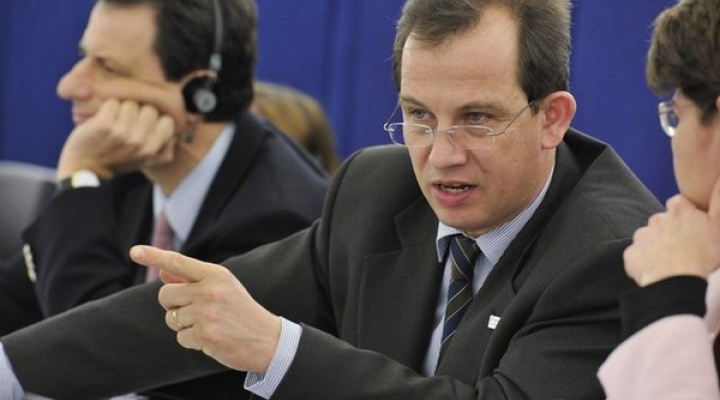Csaba Sógor in the European Parliament on youth unemployment
The RMDSZ MEP took part in the debate of the European Parliament’s plenary session from Strasbourg in the issue of youth unemployment in the European Union. The debate took place regarding the reports developed by two committees of the European Parliament.
The Committee on Culture and Education (CULT) developed a report on the EU Youth Strategy’s execution in the 2010-2012 period, while the Committee for Employment and Social Affairs (EMPL) studied the issue of managing youth unemployment. Csaba Sógor also contributed to this latter report by introducing several modification proposals.
Csaba Sógor emphasized that the crisis that still lasts after several years pushed young people into a difficult situation: on the territory of the EU youth unemployment is at 23% on average, but in several southern countries the proportion reaches dramatic dimensions, being at around 55%. In the MEP’s opinion, when developing the operational programmes that will be financed from Structural Funds in the 2014-2020 programming period, member states and the EU should tackle this worrying phenomenon. He also called for more involvement on the part of youth organisations.
The MEP’s speech can be read below:
“First: When tackling youth unemployment I think we should also mobilise youth organisations. Through my humble contribution I personally support a youth foundation. Each summer we teach young people how to develop businesses.
Second: The active participation of young people in the society is essential, especially if it is accompanied by experience acquired abroad. We should analyse the regions with low youth unemployment and use their best practices in regions with less favourable conditions.
Third: We must use all possible instruments to inform young people about work and internship opportunities from their regions. The EU has the interest to support ensuring a level of payment for young people that is on par with their aptitudes and competences, so that young professionals would not be forced to emigrate and increase the competitiveness of other regions and countries.”











